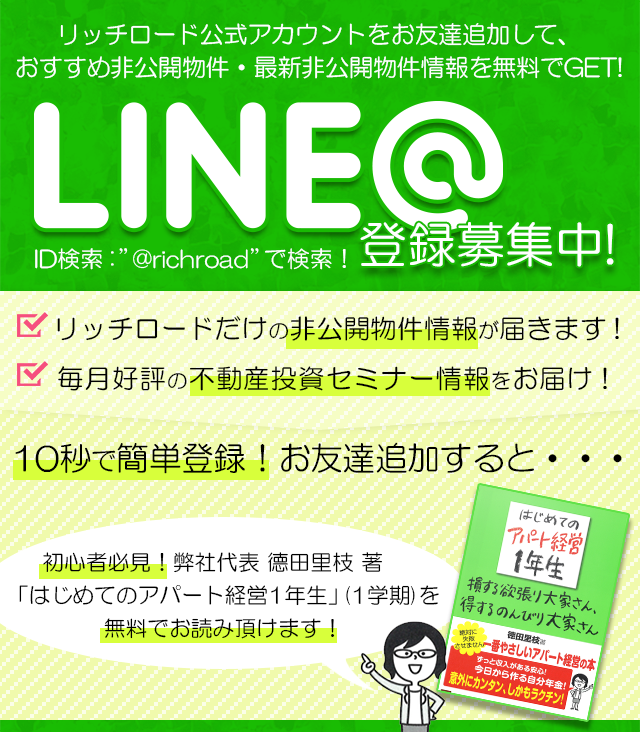Safe apartment and condominium management
In order to prevent disputes related to housing leases, this Ordinance prescribes the principle of restoration of the original state and specific matters to be borne by the borrower, based on the principles established by legal principles and precedents such as the Civil Code, before the contract. It is required that the residential land and building business operator explain to the borrower and issue a document.
Tenant recruitment
Restoration of normal wear etc. at the time of departure is basically done at the expense of the lender. Restoration of aging and loss due to normal use is generally carried out by the lender unless there is a special agreement between the lender and the borrower or for reasons attributable to the borrower. Necessary repairs during the occupancy period are generally carried out at the expense of the lender. Repairs necessary for the use and profit of the house are generally carried out by the lessor unless there is a special repair agreement between the lessor and the lessee or for reasons attributable to the lessee.
In the lease agreement, specific items that are borne by the borrower and those that will be restored at the time of departure or repairs while occupying are to be borne by the borrower based on the above principles and special agreements different from the principles.
Contact information for repair and maintenance.
If a homebuilder violates the duty to explain, etc., guidance, recommendations and publication will be provided.
When a homebuilder neglected to explain the ordinance and did not provide all or part of the explanation,
We will provide guidance and recommendations when we make false reports.
For homebuilders who do not follow the recommendations, the name, address, and details of the recommendations will be announced.
About restoration such as house wear at the time of departure
Restoration of the house due to aging and normal use is done at the expense of the lessor, and the lessee is not supposed to bear the cost.
The traces of posters and paintings on the wall, discoloration of the cloth due to natural phenomena such as sunshine, etc. should be attributable to the lessee, such as intentional or negligence of the tenant on the back of the television or refrigerator, or use contrary to normal use. If the house is worn out for any reason, the lessee is liable to pay for the restoration.
■ Example ■
Damage to pillars, etc. caused by breeding pets, scratches from moving work, water leakage from air conditioners, etc.
About special contract as exception
About special contract as exception
If there is any damage or damage, it must be done in units of one room, and the entire cost will be borne by the lessee.
■ Price ■
Tatami table replacement 1 tatami 5,000 yen (separate consumption tax) ~
House cleaning shall be performed by the lender or the cleaning company designated by the lender regardless of the degree of dirt, and the cost shall be fully paid for `` (1) Basic cleaning '' and `` (2) Carpet cleaning (for carpet) '' It will be borne by the lessee. Carpet cleaning in (2) shall be performed on a per-room basis.
* Specialized contractors do house cleaning, so there is no need to clean the lessee when moving out.
■ Price ■
1K / 30,000JPY ~, 1DK / 2K / 40,000JPY ~, 2DK / 45,000JPY ~, others are quoted separately, carpet cleaning: sq.m./1,200JPY~
* Carpets, floor cushions, floors, flooring, walls and ceiling cloths are not included in the basic cleaning section in (1).
carpet
Flooring
About repair necessary for use of house and profit
About the general principle of cost sharing
■ Example ■
Air conditioner (owned by lessor), water heater / bath kettle with long-term failure, rain leak, malfunction of fittings, etc. Reason to be attributable to lessee, such as intentional or negligence of tenant or use contrary to normal use during tenancy. If the need arises for repair, the lessee will bear the cost.
■ Example ■
Broken windows caused by children's play, broken due to empty bath
About special contract as exception
■ Reference ■
Small-scale repairs while moving in may include replacing light bulbs, fluorescent lights, and water / drain plugs.


